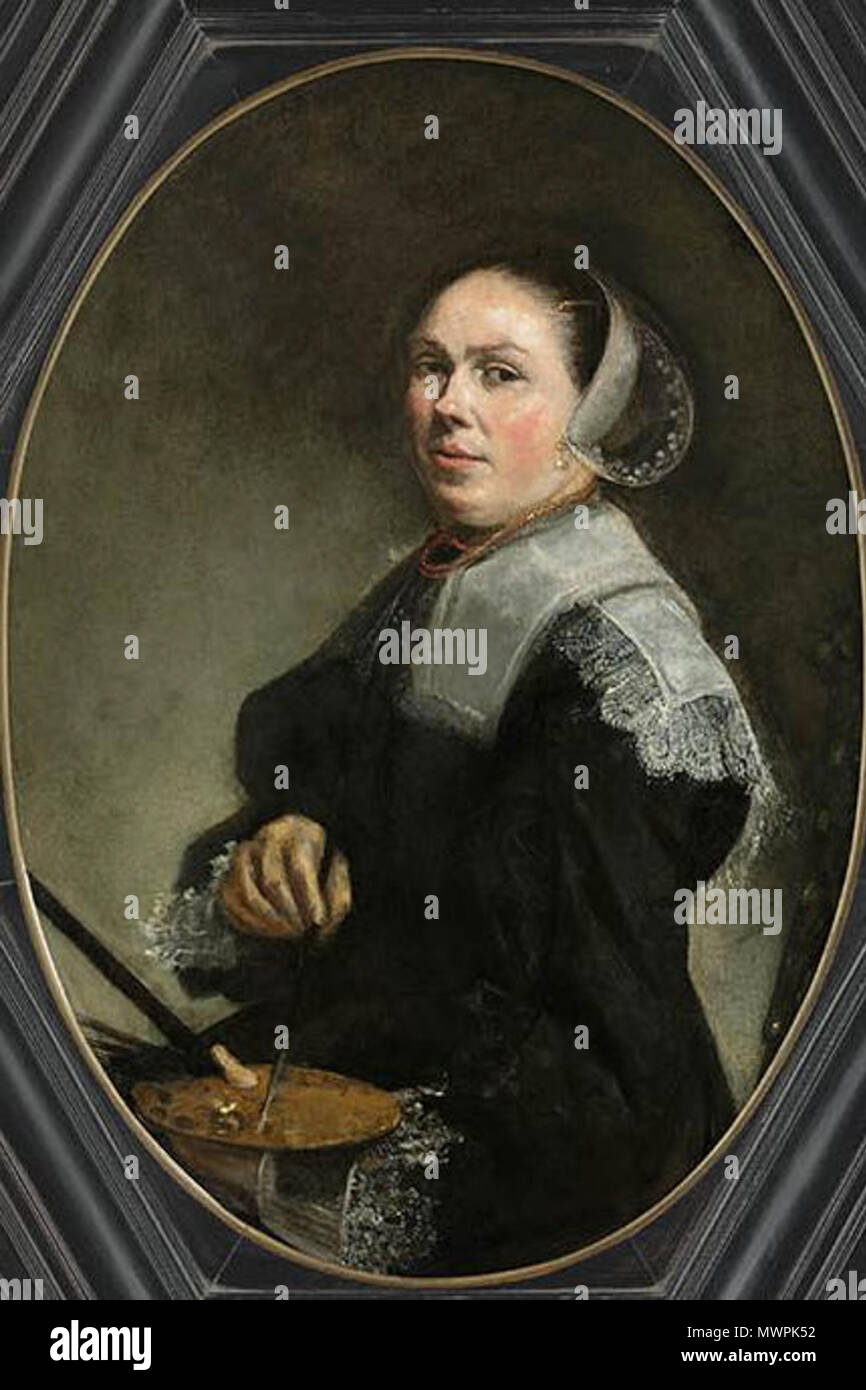
Leyster judith hires stock photography and images Alamy
June 22, 2009 Leyster's "Self-Portrait" (circa 1632-33): retroactively, a feminist icon. Courtesy National Gallery of Art, Washington A show at the National Gallery of Art, in Washington, D.C.,.
SelfPortrait, c.1630 Art Print by Judith Leyster iCanvas
National Museum of Women in the Arts Washington, D.C., United States Details Title: Self-portrait Creator: Judith Leyster Date Created: ca. 1640s Physical Dimensions: 12 1/8 x 8 5/8 in. Rights:.
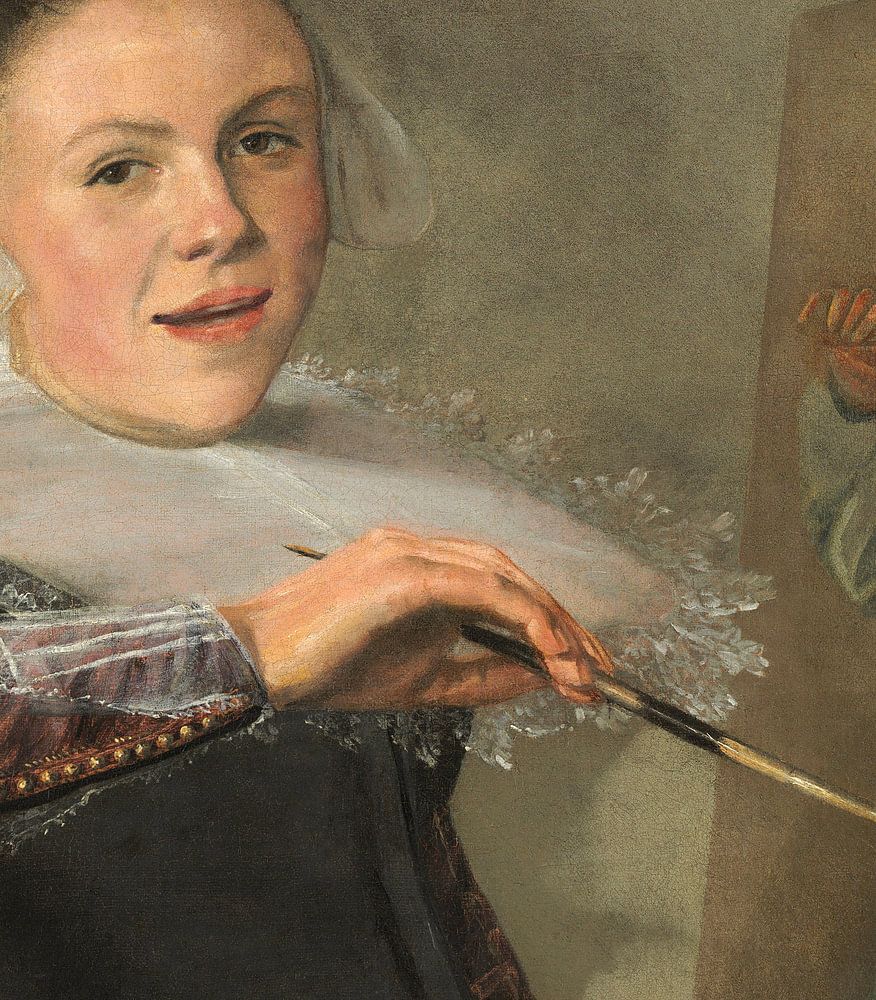
Zelfportret, Judith Leyster ca. 1630 op canvas, behang, poster en meer
Title: Self-Portrait Creator: Judith Leyster Date Created: c. 1630 Physical Dimensions: overall: 74.6 x 65.1 cm (29 3/8 x 25 5/8 in.) framed: 97.5 x 87.6 x 9.2 cm (38 3/8 x 34 1/2 x 3 5/8 in.) Provenance: Possibly the painting identified as a painting by Frans Hals depicting his daughter at the easel that appeared in four London sales between 1810 and 1812.[1]

Best 17+ Judith Leyster Self Portrait Photograph
Judith Jans Leyster was born in Haarlem, the Netherlands, in July 1609, the eighth of nine children. Her mother, Trijn Jaspers, was a weaver, and her father was a brewer who was born as Jan Willemsz, but had adopted the surname "Leyster," meaning "lodestar," in 1603. Art historians speculate that Judith Leyster was trained in painting from a.
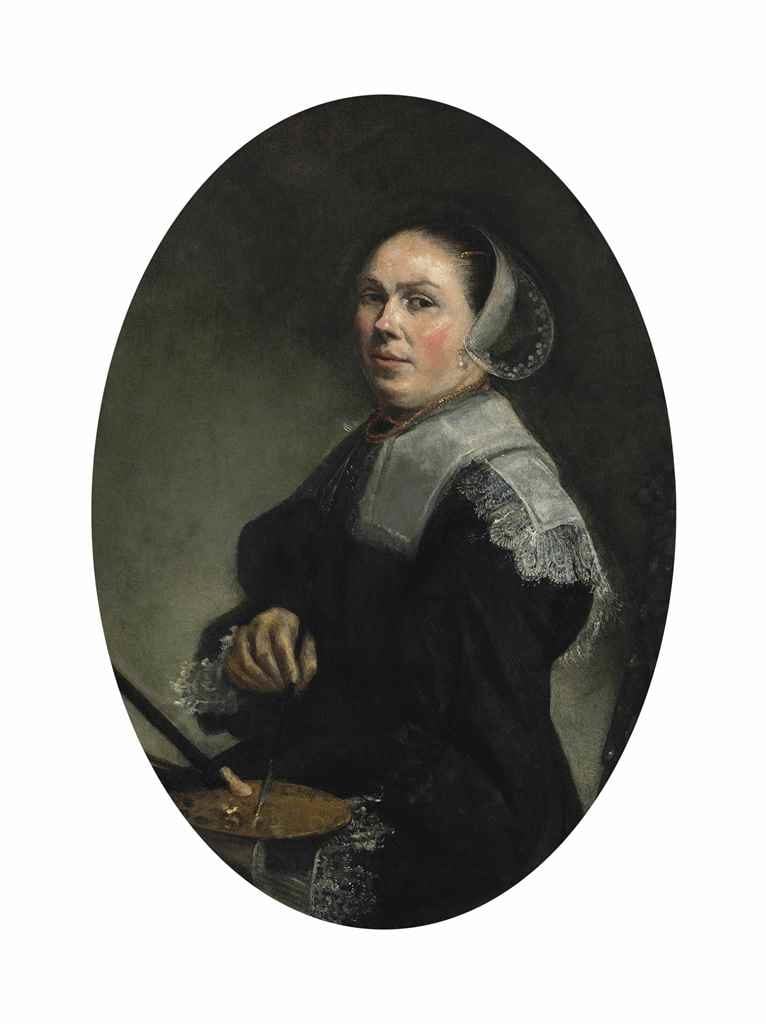
LongLost SelfPortrait by Dutch Master Judith Leyster Discovered in English Estate
Biography A professional painter, Judith Leyster was active during the Dutch Golden Age. She was born to a middle-class family in Haarlem in 1609. Her training is not well-documented, but it is widely accepted that she had some affiliation with the workshop of Frans Hals in the mid- to late-1620s.

Onbekend zelfportret Judith Leyster ontdekt Zelfportret, Kunst ideeën
Judith Leyster, (baptized July 28, 1609, Haarlem, Netherlands—buried February 10, 1660, Heemstede, near Amsterdam), Dutch painter who was one of the few female artists of the era to have emerged from obscurity. Among her known works are portraits, genre paintings, and still lifes. Judith Leyster: Boy Playing the Flute
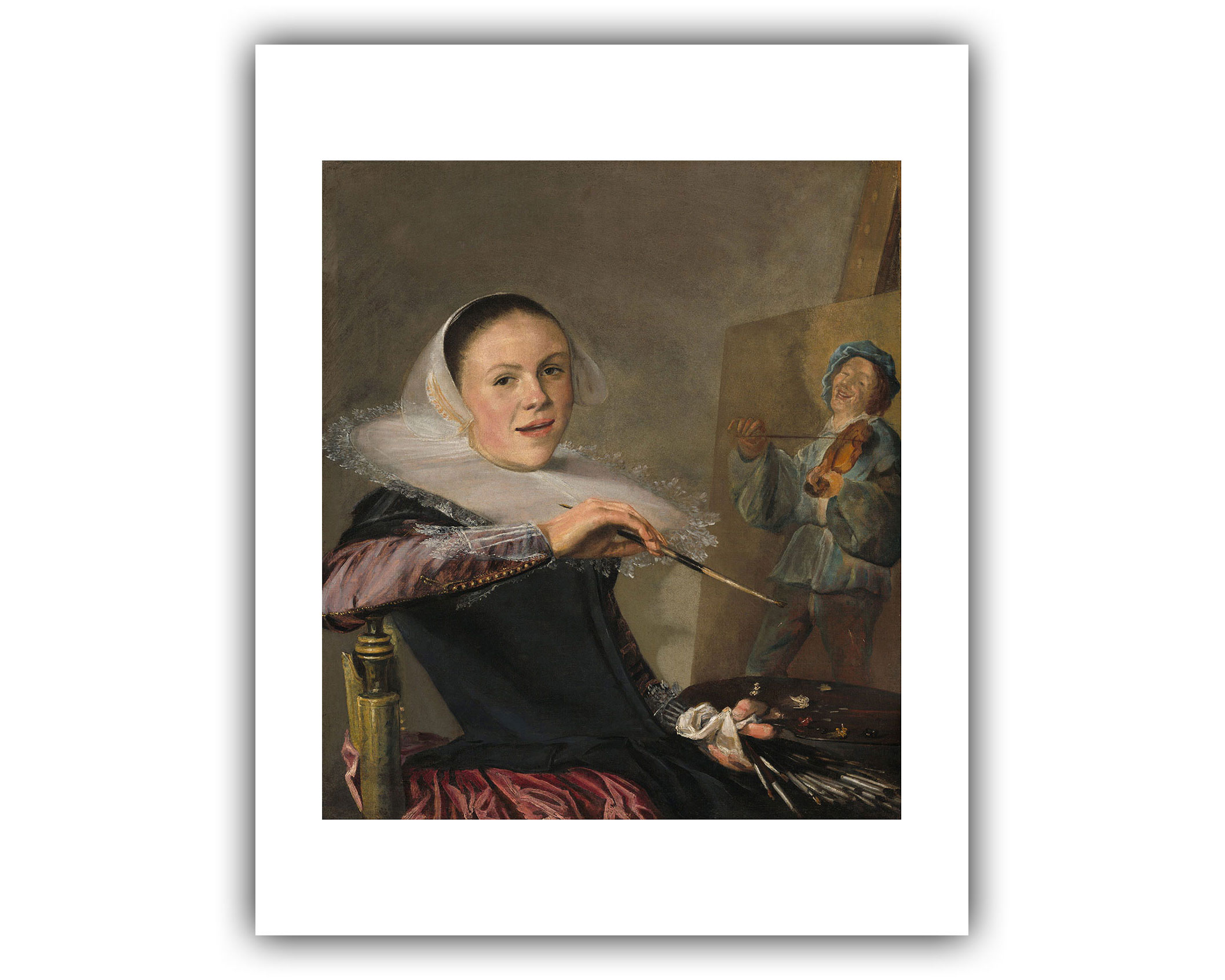
Judith Leyster "SelfPortrait" (c. 1630) The Ibis
Judith Leyster was born in Haarlem and baptized there on July 28, 1609. Her father, Jan Willemsz, owned a brewery called the "Leyster" (lodestar), from which the family took its surname. Little is known of Leyster's early training, but she clearly made a name for herself at a very young age: she is mentioned as an active artist in Samuel.

Judith Leyster, SelfPortrait, 1630 Art History Women Artists 1100…
Self-portrait by Judith Leyster is a Dutch Golden Age painting in oils now in the collection of the National Gallery of Art in Washington DC.
.jpg)
Art in Space Judith Leyster SelfPortrait (1630)
Judith Leyster was a prominent female painter during the Dutch Golden Age, and one of only two women accepted as a master by Haarlem's painters' guild in the 17th century. One of her most notable works is her Self-Portrait, which has garnered acclaim for both its technical skill and content.

Self portrait Judith Leyster 1630 Self Portrait, Judith, Personal Branding, Mona Lisa, Hero
Judith Leyster Date: c. 1630 Style: Baroque Genre: self-portrait Media: oil, canvas Location: National Gallery of Art, Washington, DC, US Order Oil Painting reproduction Article References This self-portrait shows the artist at her easel, turning in mid-stroke, with brush in hand to face the viewer.

Judith Leyster Art This will be about one female artist who was about like many
by Dr. Beth Harris and Dr. Steven Zucker Judith Leyster, Self-Portrait, c. 1633, oil on canvas, 74.6 x 65.1 cm / 29-3/8 x 25-5/8″ (National Gallery of Art, Washington D.C.) More Smarthistory images…
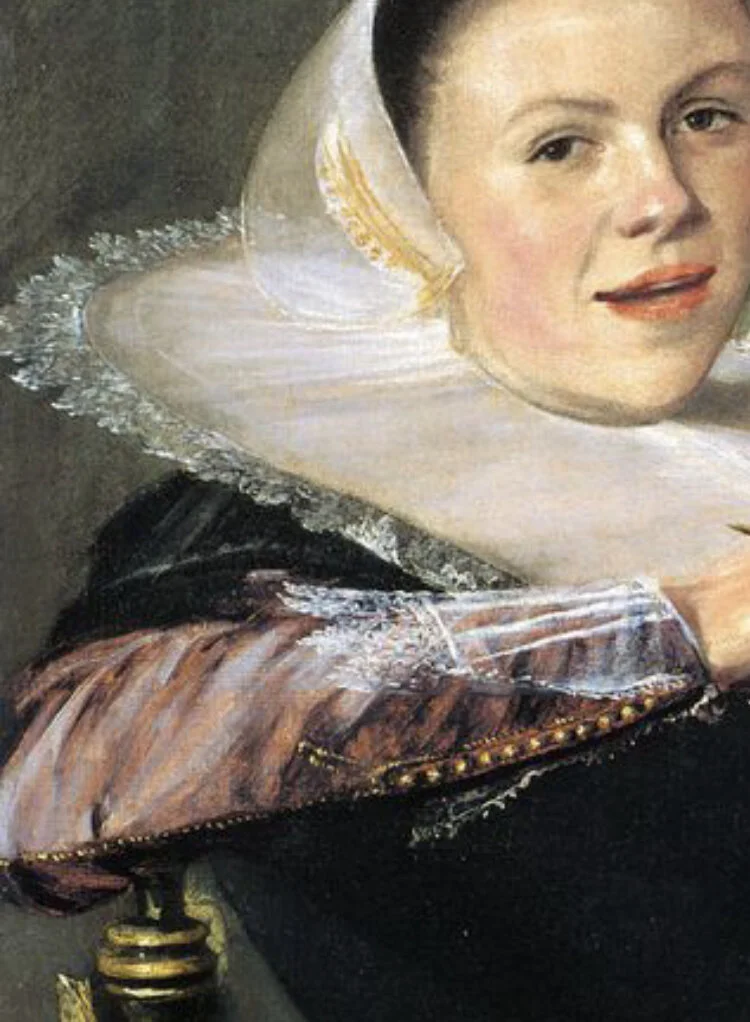
Judith Leyster's SelfPortrait — Art History Perspectives
Judith Leyster was mistaken for Frans Hals and not rediscovered until the end of the 19th century. But her smile was unmistakably her own. By Sebastian Smee Jan. 26, 2022 I love this.

Judith Leyster, SelfPortrait, c. 1633 YouTube
Background. For a woman living in the seventeenth century, Judith Leyster was remarkable. She was a successful artist, who liked to paint energetic scenes with one or two figures—sometimes children—engaged in merrymaking: music, dance, and games. She worked for several years around Utrecht and Amsterdam in the Netherlands, before returning.

Portret in het licht van de Kunstgeschiedenis Barok (3)
Zelfportret is een schilderij van de Nederlandse kunstschilderes Judith Leyster uit 1630 of iets later, waarop ze zichzelf afbeeldt achter de schildersezel. Het werk werd lange tijd toegeschreven aan Frans Hals.

Perspective Judith Leyster’s selfportrait at the National Gallery of Art is her bestknown
The following 7 files are in this category, out of 7 total. Judith Leyster - Self-Portrait - Google Art Project.jpg 5,964 × 6,813; 18.1 MB Judith Leyster - Self-Portrait - WGA12959.jpg 887 × 1,007; 136 KB Judith Leyster - Zelfportret.jpg 2,637 × 3,000; 3.34 MB Judith Leyster Self Portrait.jpg 342 × 390; 40 KB

Judith Leyster Zelfportret olieverf ca 1650 Dutch golden age, Self portrait, Painting
Judith Jans Leyster (also Leijster; baptised July 28, 1609 [1] - February 10, 1660) was a Dutch Golden Age painter of genre works, portraits, and still lifes. Her work was highly regarded by her contemporaries, but largely forgotten after her death. Her entire oeuvre came to be attributed to Frans Hals or to her husband, Jan Miense Molenaer.